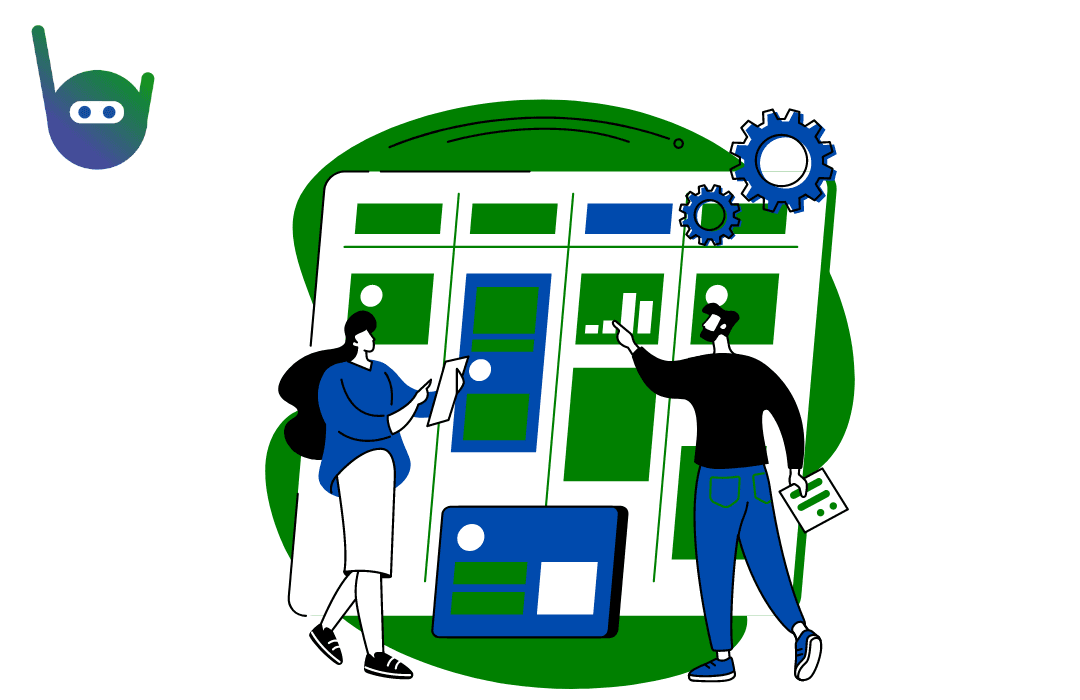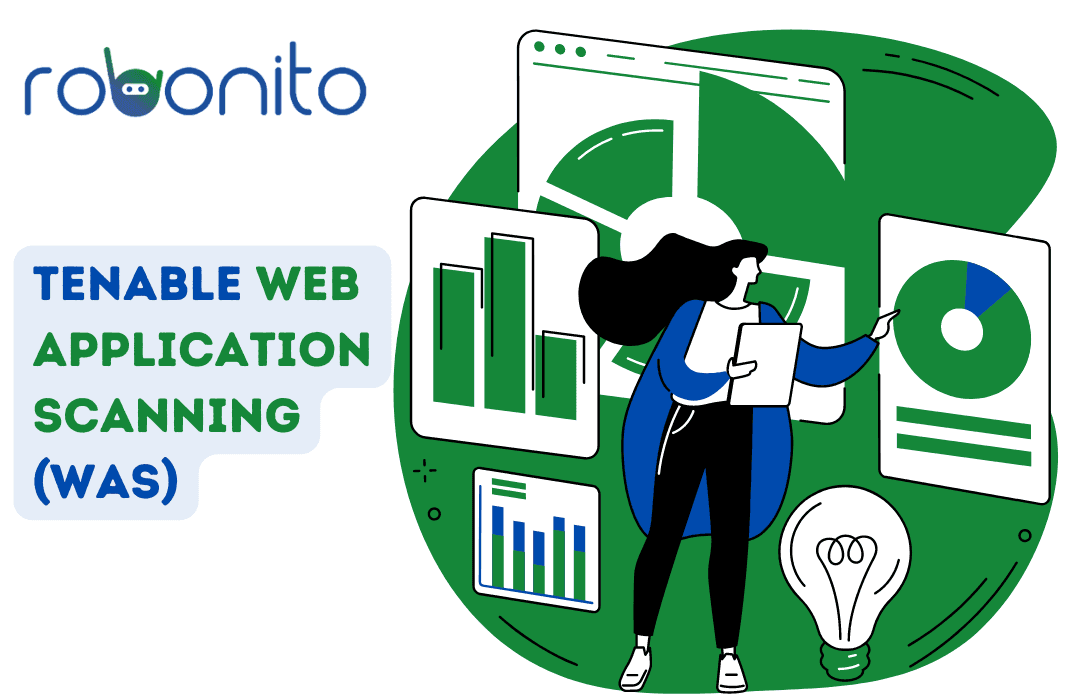In this article, we will explore the significance of Tenable Web Application Scanning and how it can help strengthen your web security. In today's digital landscape, web applications play a crucial role in our personal and professional lives. From online shopping to banking transactions, we rely heavily on web applications. However, this increased reliance also opens doors to potential vulnerabilities that cybercriminals can exploit. To ensure the security of these web applications, businesses need robust solutions like Tenable Web Application Scanning (WAS).
Understanding Tenable Web Application Scanning And Web Application Security

Web application security refers to the measures taken to protect web applications from threats such as unauthorized access, data breaches, and code vulnerabilities. As web applications become more complex, the need for comprehensive security solutions becomes paramount. Neglecting web application security can lead to severe consequences, including reputational damage, financial losses, and compromised customer data.
The Role of Vulnerability Assessment
Vulnerability assessment is a crucial component of web application security. It involves identifying weaknesses or loopholes in the application's code, configuration, or architecture. By conducting regular vulnerability assessments, organizations can proactively address these vulnerabilities and reduce the risk of potential attacks.
Introducing Tenable Web Application Scanning
Tenable Web Application Scanning (WAS) is a powerful solution designed to help organizations identify and address vulnerabilities within their web applications. It leverages advanced scanning techniques to provide comprehensive visibility into potential security gaps, empowering businesses to take proactive steps in strengthening their web security posture.
Key Features of Tenable WAS
Accurate Vulnerability Detection
Tenable Web Application Scanning (WAS) utilizes advanced scanning algorithms to identify vulnerabilities accurately. It performs in-depth analysis of web applications, including the underlying code, to detect potential security weaknesses.
Automated Scanning and Scheduling
With Tenable WAS, organizations can automate the scanning process and schedule regular scans to ensure continuous monitoring of web application security. This feature helps save time and ensures that vulnerabilities are promptly identified and addressed.
Integration with DevOps Processes
Tenable WAS seamlessly integrates with DevOps processes, allowing organizations to incorporate security checks throughout the application development lifecycle. By integrating security early on, businesses can prevent vulnerabilities from being introduced into the code.
Comprehensive Reporting and Analysis
Tenable WAS provides detailed reports and analysis of identified vulnerabilities, allowing organizations to prioritize remediation efforts effectively. It offers insights into the severity of vulnerabilities and recommends appropriate mitigation strategies.
How Tenable WAS Works
Tenable WAS follows a systematic approach to assess web application security. It begins with web crawling, where it explores the application's structure and identifies all accessible pages and functionalities. It then performs vulnerability scanning by sending crafted requests to the target application, simulating potential attack vectors. Finally, it analyzes the results and generates detailed reports highlighting vulnerabilities and recommended actions.
Benefits of Tenable Web Application Scanning

Enhanced Web Application Security
By leveraging Tenable WAS, organizations can significantly enhance their web application security posture. The solution helps identify vulnerabilities before they can be exploited by attackers, reducing the risk of data breaches and other security incidents.
Cost and Time Savings
Automated scanning and scheduling capabilities of Tenable Web Application Scanning (WAS) save organizations valuable time and resources. The solution streamlines the vulnerability assessment process, enabling efficient remediation efforts and reducing the overall cost of security management.
Compliance with Industry Standards
Tenable WAS assists organizations in meeting industry-specific compliance requirements. Identifying vulnerabilities and providing actionable recommendations, helps businesses align with regulatory frameworks and standards.
Implementing Tenable Web Application Scanning (WAS) in Your Organization
To implement Tenable WAS effectively, organizations should follow these steps:
-
Assess Your Web Application Landscape: Identify all web applications within your organization's infrastructure and evaluate their importance and potential risk levels.
-
Plan Scanning Strategy: Define the scanning frequency, prioritize critical applications, and set up an appropriate scanning schedule.
-
Configure Tenable WAS: Customize the solution according to your organization's specific requirements and security policies.
-
Perform Initial Scans: Initiate the first scanning process to identify vulnerabilities and establish a baseline for future assessments.
-
Remediation and Ongoing Monitoring: Address identified vulnerabilities promptly and implement continuous monitoring practices to ensure web application security.
Best Practices for Maximizing Security
To maximize the effectiveness of Tenable Web Application Scanning (WAS) and strengthen your web security, consider the following best practices:
-
Regular Updates and Patch Management: Keep your web applications up to date with the latest security patches and updates to address known vulnerabilities.
-
Secure Coding Practices: Follow secure coding guidelines and perform regular code reviews to identify and fix potential security flaws.
-
Employee Training and Awareness: Educate your employees about web security best practices, including strong password management, phishing awareness, and safe browsing habits.
-
Secure Configuration Management: Implement secure configuration management practices to reduce the attack surface of your web applications.
-
Incident Response Planning: Develop a robust incident response plan to handle potential security incidents promptly and effectively.
Continuous Monitoring and Risk Assessment
Web application security is an ongoing process that requires continuous monitoring and risk assessment. By regularly scanning and assessing your web applications using Tenable WAS, you can stay ahead of potential threats and ensure the ongoing security of your digital assets.
Integration with Other Security Solutions
Tenable WAS can be integrated with other security solutions, such as vulnerability management systems and security information and event management (SIEM) platforms. This integration enhances the overall security posture of your organization by providing a holistic view of vulnerabilities and potential threats.
Tenable Web Application Scanning: A Cost-Effective Solution
Tenable WAS offers a cost-effective solution for organizations looking to strengthen their web application security. Automating scanning processes and providing actionable insights, it helps businesses minimize security risks and optimize their security investments.
Tenable WAS and Compliance Requirements
For organizations operating in regulated industries, Tenable WAS plays a crucial role in meeting compliance requirements. It helps identify vulnerabilities that could potentially lead to non-compliance and provides guidance on addressing them effectively.
Real-World Examples of Tenable WAS Success
Numerous organizations have benefited from implementing Tenable Web Application Scanning (WAS) as part of their web application security strategy. One such example is a leading e-commerce company that detected critical vulnerabilities using Tenable WAS, allowing them to patch the vulnerabilities and prevent a potential data breach.
The Future of Web Application Security
As technology continues to evolve, so do the threats targeting web applications. The future of web application security lies in proactive measures, continuous monitoring, and the integration of advanced technologies like machine learning and artificial intelligence to identify and mitigate vulnerabilities effectively.
Conclusion
In an increasingly interconnected world, web application security is of paramount importance. Tenable Web Application Scanning (WAS) offers organizations a comprehensive solution to identify and address vulnerabilities, ensuring the protection of sensitive data and maintaining trust with customers. By implementing Tenable WAS and following best practices, businesses can strengthen their web security posture and stay one step ahead of potential threats.
Revolutionize your software testing with Robonito, the ultimate no-code RPA automation testing tool. Say goodbye to endless testing hours – Robonito slashes testing time by a staggering 98%! Ready to experience the future of software testing? BOOK A FREE DEMO NOW and transform your testing process today!
FAQs (Frequently Asked Questions)
Q1: Is Tenable Web Application Scanning suitable for small businesses?
Yes, Tenable Web Application Scanning is suitable for businesses of all sizes. Its scalability and customizable features make it an effective solution for small businesses looking to enhance their web application security.
Q2: How often should I schedule web application scans with Tenable WAS?
The frequency of scans depends on various factors, including the criticality of your web applications and the rate of change within your infrastructure. However, it is generally recommended to schedule scans at least once a week to ensure ongoing security.
Q3: Can Tenable WAS detect zero-day vulnerabilities?
While Tenable WAS excels at identifying known vulnerabilities, detecting zero-day vulnerabilities is a more complex challenge. However, by keeping your applications up to date and implementing other security measures, you can reduce the risk posed by zero-day exploits.
Q4: Does Tenable WAS provide remediation guidance?
Yes, Tenable WAS provides detailed reports and actionable recommendations for remediation. These recommendations help organizations prioritize and address vulnerabilities effectively.
Q5: Is Tenable WAS suitable for both on-premises and cloud-based applications?
Absolutely. Tenable WAS can scan and assess both on-premises and cloud-based applications, providing comprehensive coverage regardless of the hosting environment.
